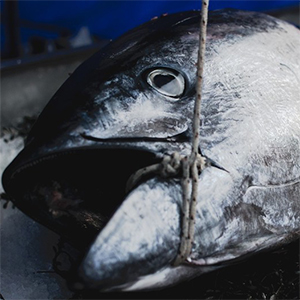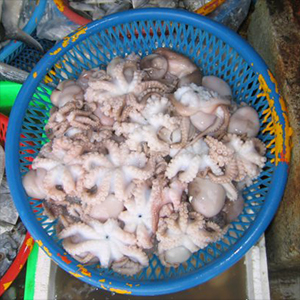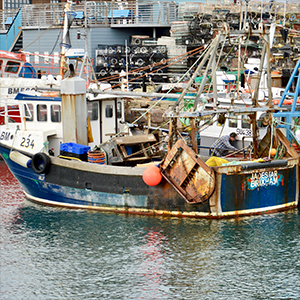China’s policy efforts to limit bottom trawling are not working
By tracking the changes in China’s bottom trawl fishing policies from the 1950s to today and found that these policies are not working
Q & A: The EU needs to end its provision of harmful fisheries subsidies
“The problem with harmful fisheries subsidies is that although they might support job security and raise income… they undermine a renewable resource that is technically owned by everyone. Fishing can’t exist without the fish.”
FCRR – Assessments of marine fisheries resources in West Africa with emphasis on small pelagics
From a training course entitled “Utilisation de la méthode CMSY pour l’évaluation des stocks ouest-africains” held in September 23-27 2019 in Dakar, Senegal.
New World Wildlife Fund reports call for better policy to save fish from climate change
IOF’s Drs. Juan Jose Alava and William Cheung contributed to two WWF reports.
In Memoriam: Arthur (Art) Tautz
The UBC alumnus was a leader in British Columbia’s provincial fisheries agencies, adjunct professor in the IOF and its predecessor units. He will be greatly missed.
Villy Christensen receives AFS Award of Excellence
Dr. Christensen is the principal architect behind Ecopath, and the project leader and core developer of the expanded ecosystem modelling system Ecopath with Ecosim (EwE).
Popular fish species disappear from Turkey’s Marmara and Black Seas
Bluefin tuna, swordfish and Atlantic mackerel are among the fish species considered commercially extinct or extirpated on the Turkish side of the Marmara and Black Seas.
Popular seafood species in sharp decline around the world
Of the fish populations analyzed, 82% were found to be below levels that can produce maximum sustainable yields. Of these, 87 populations were found to be in the “very bad” category, with biomass levels at less than 20% of what is needed to maximize sustainable fishery catches.
COVID-19 and BREXIT can help with the recovery of UK fish stocks
The researchers propose fishing targets be set to levels in which fishers leave more fish in the water than the minimum required to generate maximum sustainable yields
Recovery of sea otter populations yields more benefits than costs
Long-term benefits of sea otter recovery could be worth as much as $53 million per year


